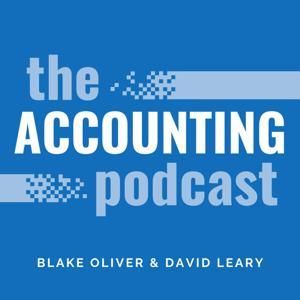What happens when technical excellence meets deep human empathy? In this episode, Carl Richards, CFP®, author of Your Money and creator of the famed "Sketch Guy" column in The New York Times, joins host Cary Sinnett to explore how CPA financial planners can foster trust through simplicity, storytelling, and purposeful conversation.
Carl shares how sketches can cut through complexity, how planners can create space for real client understanding, and why listening with intention may be your most powerful technical skill. Whether you're coaching a client through uncertainty or explaining a nuanced tax strategy, Carl shows how precision with purpose is the future of trusted planning.
You'll Learn in This Episode:
Why financial planners are in the behavior change business Carl challenges CPA financial planners to see their role not just as experts, but as guides who help clients change the way they think and act with money.
How technical precision with purpose can lead to greater outcomes Carl explains how our drive for technical perfection can sometimes overshadow the deeper emotional and behavioral work required to truly serve clients well.
Practical ways to build trust through clarity and vulnerability Learn how to shift your communication from "Here's the solution" to "Let's explore this together"—and how that builds long-term trust.
Whether you're a numbers-first technician or a holistic planner striving to connect more deeply with clients, this episode offers both insight and inspiration.
Resources:
Podcast: Turning Panic into Trust
Video: Old Problems, New Solutions: Techniques for Solving Concentrated Stock Positions
Podcast: The why, what, and how behind legacy planning for your clients
This episode is brought to you by the AICPA's Personal Financial Planning Section, the premier provider of information, tools, advocacy, and guidance for professionals who specialize in providing tax, estate, retirement, risk management and investment planning advice. Also, by the CPA/PFS credential program, which allows CPAs to demonstrate competence and confidence in providing these services to their clients. Visit us online to join our community, gain access to valuable member-only benefits or learn about our PFP certificate program.
Subscribe to the PFP Podcast channel at Libsyn to find all the latest episodes or search "AICPA Personal Financial Planning" on your favorite podcast app.




































